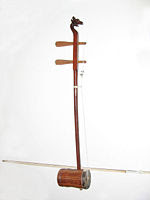It will come as no surprise to
A Nation of Shops
You can still see traces of this today. I am sure it still exists in rural areas although my exposure to this is limited. Rural  Behind a curtain in the back other family members are eating lunch, visiting, washing clothes or taking care of personal grooming. It is common for several generations to live upstairs above the shop. Children play underfoot and are tended by whatever sibling, cousin, or aunt is available. In a covered bazaar with many shops fronting out onto a narrow alley, some of the shops—one at this end, one at the other end, and one in the next alley—are owned by the same extended family. Once I was admiring a baby in one shop as it clung to its “mother,” but the next day I saw the same baby in another shop around the corner with its real mother. Another time when I was trying to pay for an item with a bill too large to cash, a small child ran up the street to an uncle’s shop to get change.
Behind a curtain in the back other family members are eating lunch, visiting, washing clothes or taking care of personal grooming. It is common for several generations to live upstairs above the shop. Children play underfoot and are tended by whatever sibling, cousin, or aunt is available. In a covered bazaar with many shops fronting out onto a narrow alley, some of the shops—one at this end, one at the other end, and one in the next alley—are owned by the same extended family. Once I was admiring a baby in one shop as it clung to its “mother,” but the next day I saw the same baby in another shop around the corner with its real mother. Another time when I was trying to pay for an item with a bill too large to cash, a small child ran up the street to an uncle’s shop to get change.
Grandpas and Grandmas
It seems that no matter how upscale a family gets, the family ties remain the same. There are many upwardly mobile families in  Every day on the streets of the city where I live I see a grandmother or grandfather gently shepherding a toddler along. It is a most endearing sight. In the morning I see grandfathers pedaling the family bicycle to kindergarten with a young child sitting behind. In the evening the flow is reversed, again with the grandparents providing transportation.
Every day on the streets of the city where I live I see a grandmother or grandfather gently shepherding a toddler along. It is a most endearing sight. In the morning I see grandfathers pedaling the family bicycle to kindergarten with a young child sitting behind. In the evening the flow is reversed, again with the grandparents providing transportation.

In the Words of My Students
I know little about the dynamics of family life in
 When I asked them to write about their families, the results sounded like they had come from a Seminary class. Wang Zijia (
When I asked them to write about their families, the results sounded like they had come from a Seminary class. Wang Zijia (
“I Am Their Hope”
In many cases it is on the backs of my young students that the family will move on. Families make an enormous investment in their children by sending them to a university. While it is obvious that the parents of some students are full partakers of China’s new prosperity—their children are taken to college in black Buicks (China’s new status symbol), carry laptops, and have braces on their teeth—it is equally obvious that others are sending their children to college on a prayer and a shoestring. Some students come from small villages. When describing his parents, one student simply wrote, “They are peasants.” I took this to be literal, not figurative. Having a child graduate from college is sometimes the key to upward mobility. Often the whole extended family will chip in. One student wrote about how her older businessman brother was funding her education. I was asking one promising young student about her parents. She said they were farmers, and it became clear further on in the conversation that the farm was very small, that there was no mechanization, and that the earnings were meager. Then most poignantly she said, “I am their hope.”
A Bitter Choice
In a land where retirement plans are not universal, children are indeed the hope of their parents in both the filial and financial aspects. Young people are amazed when they learn we have seven children, when they plan on having only one. But I was shocked when one young professional said she planned on having none. Early in their marriage, she and her husband had made a choice.  Her aged parents lived with them and were totally dependent on them. The living quarters were small and cramped, and because of the crunch on housing this was not likely to change. They had decided that she had more of an obligation to her parents—to make their declining years comfortable—than she did to a future generation. They had arrived at this decision with full knowledge that the family line would end with them. In my experience, I find that while this attitude is not common, it is frequent.
Her aged parents lived with them and were totally dependent on them. The living quarters were small and cramped, and because of the crunch on housing this was not likely to change. They had decided that she had more of an obligation to her parents—to make their declining years comfortable—than she did to a future generation. They had arrived at this decision with full knowledge that the family line would end with them. In my experience, I find that while this attitude is not common, it is frequent.
From Dawn to Dusk
Maintaining a family unit economically is not easy. Chinese families work hard and long. This is particularly true of shop owners who always seem to be in their shops day and night. The idea of a weekend has little meaning for them, except that it may mean a spike in business since many professionals and government employees are off on the weekend. I know a man who runs a small copying business near campus. He operates with one copy machine and two computers out of a space that measures about six by eight feet. This is the family business. And he is always there. His hours are







 XISU's new campus
XISU's new campus The Library
The Library








